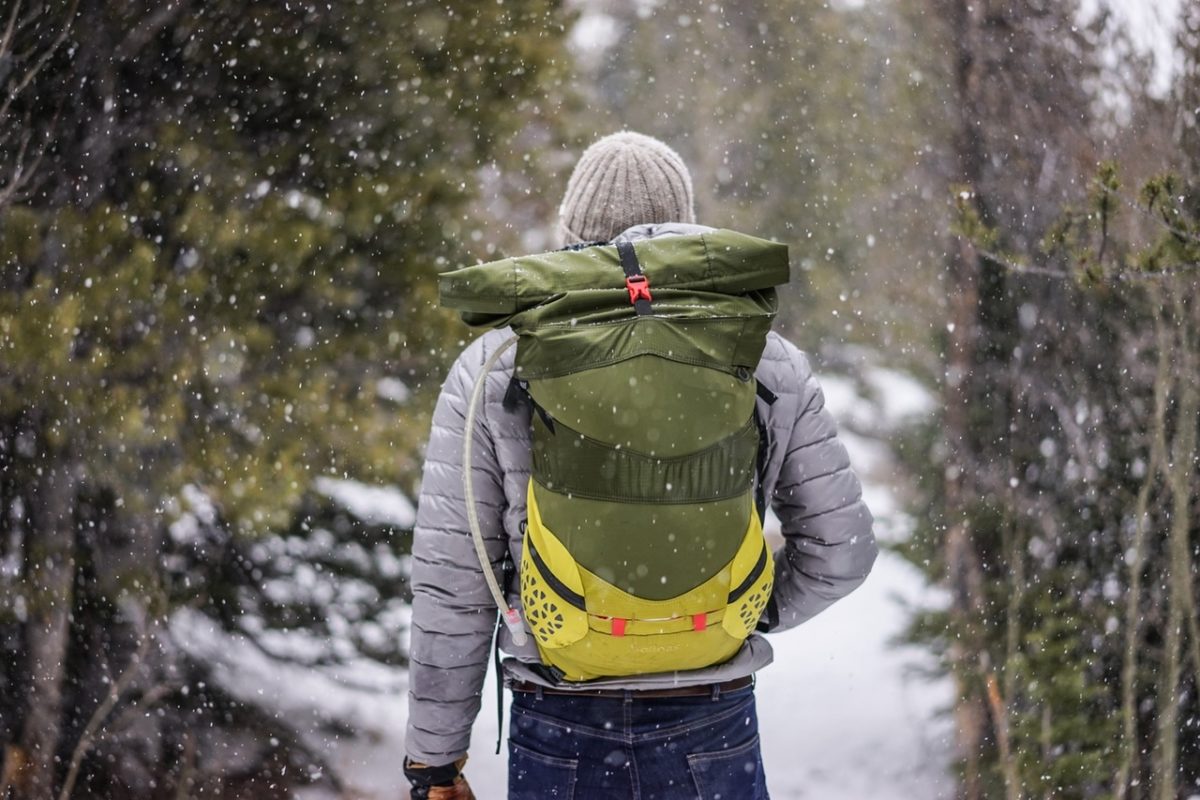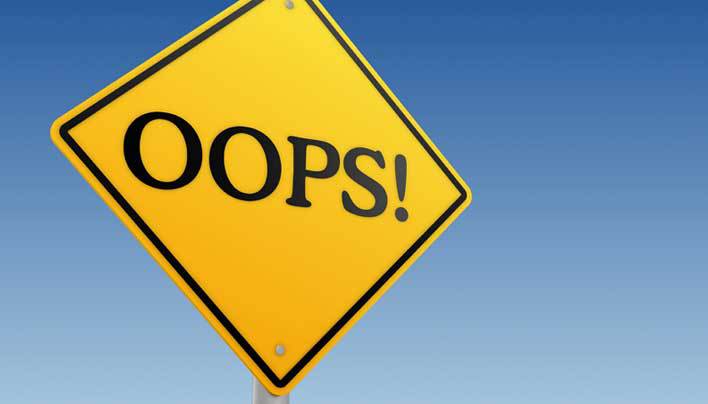
The big and bad books of prepping say that every mistake, no matter how small it is, can cost you your life. Well, even though I’m going into my five years of prepping, I’ve discovered that even in our cozy corner of the Internet there’s room for exaggeration.
Sure, getting snowbound with no food, water, or communication device can kill you, but, c’mon, who’s stupid enough to brave the elements without even taking the smallest safety measures? As my grandma used to say, nobody’s born knowing, and, like it or not, at some point you’re going to make some mistakes. No, it’s not the end of the line, but you should give it your best to learn from them before venturing out into the world again.
Anyway, for today’s article, I was thinking about making a small list of big and small prepping mistakes. Most of them are, of course, the fruits of my own experiences and misadventures, while others are stuff I’ve heard throughout the years from friends, family members, and prepping forums. So, without further ado, here are some of the most common prepping slipups and how to fix them in a jiffy.
Playing the Lone Wolf part
Over the past couple of years, I’ve noticed that most preppers tend to use the first-person singular when they talk about their prepping habits: “I went to the military surplus store and bought X item.”, “I create a B.O.B for each family member.” This shows that a good deal of preppers is way too comfortable playing the Lone Wolf part, making no efforts to involve their family members. I can understand that to some degree – some of them may be too busy or simply don’t care.
Others are far too young to partake in the discussion that revolves around disasters, death, disease, and whatnots. However hard this might be for you, stop what you’re doing. It’s in everyone’s benefit to know what to do in case of an emergency.
You should also stress out the idea that prepping’s is never about digging fallout bunkers or arming yourself to the teeth whenever the East passes a fart. It’s about using your noggins to deal with everyday issues like changing a light bulb, replacing some electrical wires, reaching your workplace in time if you miss the bus or making a light source when you’ve run out of candles, matches, lighters, and batteries for your tac flashlight.
Being too comfortable around one water source
Tap and bottled water are great. Still, you shouldn’t take either one for granted. If you have an electrical pump in the basement, one chink in the power grid and its buh-bye water. Of course, you can always run out of bottled water, and it happens a lot faster than you think.
You really don’t need to be facing a life-threatening situation to realize just how quickly those bottles disappear from your household emergency kit – baby formula, for instance, has to be prepared by bottled or otherwise sterilized water. Wound cleaning requires the same kind of water.
And when the shit really hits the fan, it will be hard to replenish your stock considering that others will do the same; or you may be stuck in the wilderness with no access to a store or supermarket. That’s why it’s important to learn how to conserve and, if necessary, stockpile water from other sources.
Common household items like the toilet tank, pipes, and water heater can be great water sources during an emergency. Collecting rainwater or siphoning the clear liquid from tree holes are valuable skills.
Apart from finding water, you should also learn how to make it safe to it – boiling, adding water purification tablets, distillation.
Being too cocky or overly-cautious
In my opinion, life’s more about finding the middle ground, rather than being bias. Dunno if it’s healthy or right or wrong or moral, but it did offer me some measure of accomplishment.
You really don’t need to be standing in front of a tornado to realize that there’s a time for caution and a time to take charge. In our humble abode, being too cocky or overly-confident about your survival skills is stupid. Why? Because you’ll end up making mistakes that even a newbie avoids.
I believe the same thing can be said about being way too cautious in a situation, always overanalyzing things when you’re supposed to do it. There’s a surefire remedy for this – assessment. Yes, I know it’s one of the most boring things you learn as a prepper, but it’s one of the building bricks of survival. Assessing a situation allows you to understand it and to find suitable solutions.
Long-term vs. short-term prepping
Let me put it this way – what’s the use of preparing for a snowstorm when you don’t even have a complete first-aid around the house? Or, better yet, why bother building a safe room in the house when you don’t even an emergency supplies stockpile? Of course, long-term prepping is very important, but we shouldn’t lose track of the things we must do right and now. Once you’ve checked everything off the short-term prepping list, you can move out to other stuff. Remember your priorities!
Home cooking
For someone who usually ends up ordering things online just because he’s not in the mood to cook, I have to say that homemade meals are the best. And yes, from-scratch cooking is a very valuable skill, especially if you’re stuck somewhere where there’s no access to the Internet or phone signals (or don’t have anyone around to cook your meals).
For some, cooking’s right there next to rocket science. Believe me; it’s not that hard. If you follow the recipe to the letter, nothing can go wrong. More than that, if you have someone around the house who really knows how to cook, you should do well and stick around. You might learn a thing or two. Always start small and work your way towards more refined dishes.
That’s about it for my list of common prepping mistakes. What do you think? Hit the comments section and let me know.

















